Author(s): Ohm Patel
Combining AI with blockchain smart contracts is possible and can significantly improve smart contracts' functionality, flexibility, and performance. In this paper, concepts of intelligent contracts, advanced through artificial intelligence, are described as potential solutions for increasing the efficiency and security of numerous industries. Some of these are explained by showing the application of the technology in financial services, supply chains, healthcare, and legal processes, as well as the practical enhancements brought about by this technology. Furthermore, the paper explores the prospects for developing the AI smart contract regarding compatibility, expansibility, ethical artificial intelligence, and superior automation. AI and blockchain integration are predicted to have immense impacts on economics and social advancements that will lead to increased automation and decentralization.
Through decentralization and automation, smart contracts and scripts on blockchain systems have disrupted traditional contract applications by excluding third parties. It is settled when certain predetermined conditions are met, and since it is based on the programming of the contract, it is safe and secure to do business this way. However, technology could be better, especially when dealing with real-life situations, as they are dynamic and often complicated.
Smart contracts can be made more innovative and flexible due to AI mechanisms that emerged in the context of improving various aspects of contract execution in recent years. By integrating AI into intelligent contracts, efficiency is improved, and security is increased since decision-making will be automated. But with the help of integrating AI, smart contracts can process large amounts of data and make predictions regarding certain conditions in the future, adjusting the conditions of the contracts accordingly.
This paper aims to explain the integration of AI with smart contracts, the changes this technology brings, its uses, and potential future developments. It discusses how AI can enhance smart contracts’ weaknesses and expand their use case into multiple industries. Furthermore, the paper examines the problem and its potential approaches regarding integrating smart contracts supported by artificial intelligence and the economic and social effects of intelligent contracts.
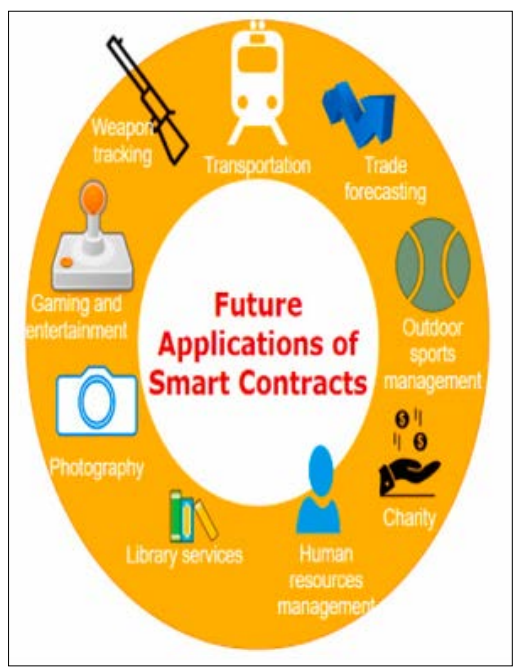
AI brings several improvements to the traditional intelligent contracts concept and solves many inherent problems or expands their possibilities [1]. One of the first improvements is the automation of the decision-making process. Evaluations inside smart contracts concern AI algorithms capable of deciding concerning a changing environment and rich datasets without involving feelings. For example, AI can prophesy market conditions and contract provisions to make contracts work efficiently, even in dynamic settings.
The contract execution processes are also made efficient by the use of AI and automated decision-making. These processes can be managed by machine learning models, as this will ease the computational work and increase the transaction speed. The techniques are instrumental because they help avoid concerns before they present themselves, facilitating organizational functioning and eliminating delay.
Another significant advantage of using AI integration is the increased security of the system. The use of AI in developing an automatic anomaly detection framework allows for the real-time detection of security threats that may jeopardize the efficacy of intelligent contracts to counteract fraudulent transactions and, thereby, add to the reliability of the information contained in smart contracts. These systems learn from the newly constituted data, and thus, they provide proactive constraints against new evolving threats.
In general, incorporating AI into a smart contract results in significant enhancements in decision-making, effectiveness, and security. These enhancements not only overcome the weaknesses of basic smart contracts but also make it possible to apply them in a wider range of fields, thus creating the foundation for the further evolution of the blockchain [2].
The integration of AI with blockchain technology has opened new avenues across various industries:
The integration of AI in smart contracts in areas such as financial processes, risk analysis, and compliance can reduce operation costs and increase precision [3]. It can also perform real-time fraud detection and risk management, safeguarding financial integrity.
AI, together with smart contracts, enables real-time monitoring and authentication of goods, thus improving supply chain performance. Through real-time monitoring and adaptation, AI can predict stock demand, manage supply chains, and adhere to contract specifications [4].
Smart contracts powered by AI increase the reliability of patient information, consent processing, and insurance claims, thus improving trust in healthcare chains [5]. By utilizing AI with blockchain’s security for data inaccessibility, patients’ records can be scrutinized for a more accurate diagnosis and appropriate treatment.
Integrating intelligent contracts with AI can help automate legal activities such as form preparation, compliance, and litigation. AI can read contracts, make a case prognosis, and guarantee compliance with current legislation.
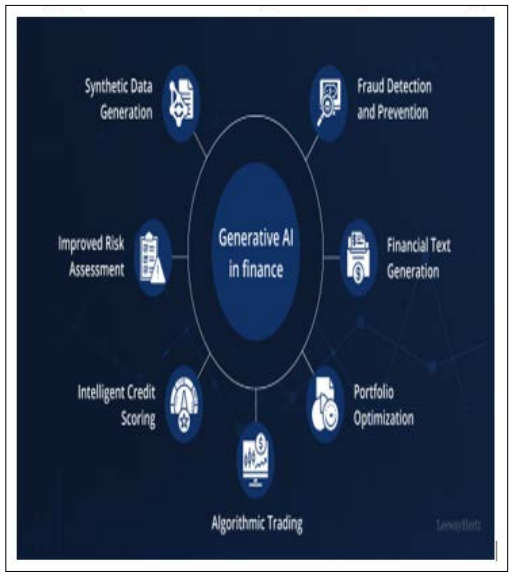
Figure 2: Generative AI in finance and banking
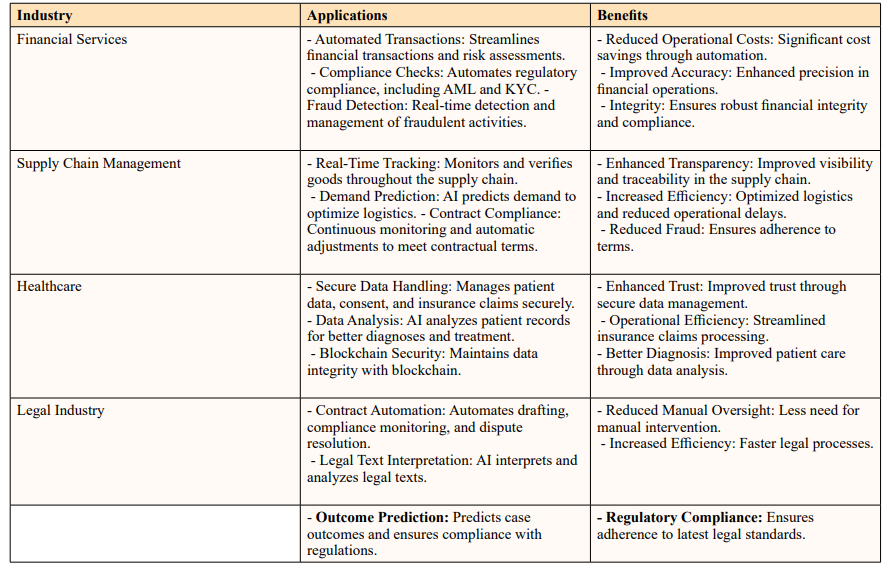
Neural networks, intense learning models, are critical in boost- ing bright contract performances because of their capability to analyze enormous amounts of data [6]. These models are much better at recognizing patterns and making highly detailed and sometimes distant predictions based on data collected from the past. In applying intelligent contracts, it is possible to use neural networks to study the tendencies in the market, determine the prospective conditions and adapt the contract's clauses. This ca- pability enables smart contracts to run and come to conclusions independently, thus making them flexible in contract implemen- tation.
Deep learning models located in neural networks effectively pro- cess multidimensional data. Such tools are needed for applica- tions that involve fine-grained understanding and forecasts. For example, they can be used in calculation and approximation, risk assessment, and even some compliance and legal review work in contracts such as smart contracts. Due to their capacity for harnessing large amounts of data, they can increase the effective- ness of their work over time, making them exceptionally useful in contractual conditions where precision and regular changes may be necessary.
Still, it is possible to enhance intelligent contracts with the help of decision trees, which can be considered more accessible com- pared to other methods mentioned. Its strengths are in the trans- parent, decisive processes it offers to its clients or members of organizations. An example of how smart contracts can be cre- ated from decision trees is the development of rule-based smart contracts that carry out defined actions if triggered by specific inputs or circumstances. Because of the clear and logical struc- ture, decision trees are suitable for automating contract terms and conditions with strict rules and criteria on when and how to use them.
On the one hand, neural networks have deeper informational processing and can learn dependencies based on data. Still, on the other hand, decision trees look more transparent when em- bedding automation of intelligent contracts based on logical trees [7]. Implementation in parallel or series of these AI models enables a synergy where the Neural Networks address the com- plex structures capable of predicting. At the same time, decision trees, which are simple rule-based automation, provide a basic solution. This integration may also improve intelligent contracts' general utility and increase smart contracts' performance or ef- fectiveness in different applications.

Figure 3: AI-Based Modeling
Neural networks can be incorporated into intelligent contract ar- rangements by implementing AI calculations straightforwardly into the blockchain application layer, including the Ethereum smart contract platform. For instance, in the use of clever con- tracts, neural networks could be integrated to perform predictive analyses, incorporating them into the contracts for contract flex- ibility based on predictions of the future. Decision trees can rule intelligent contracts that trigger pre-determined operations when certain stimuli or triggers are received [9].
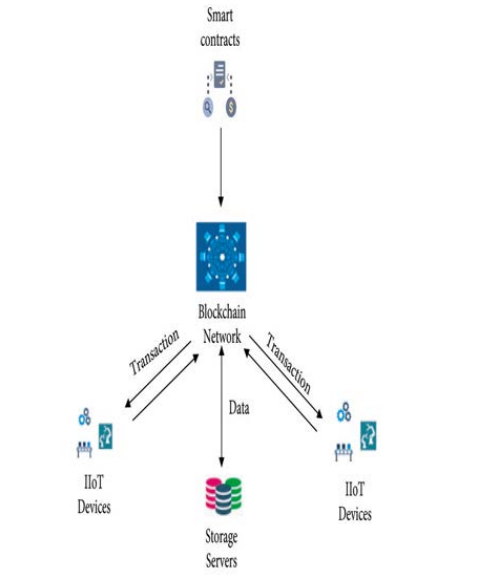
Figure 4: Integration of blockchain, smart contract, and IIoT- based system
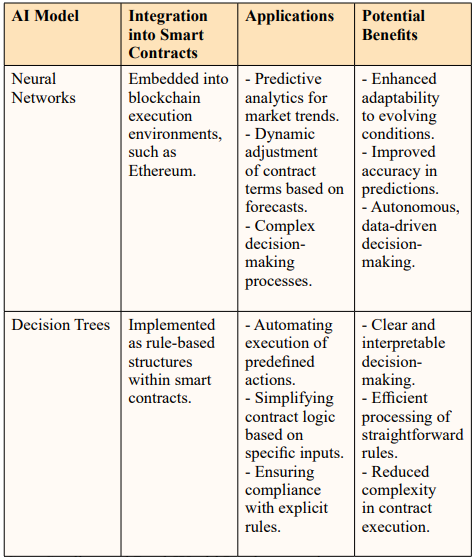
Case Studies and Real-World Implementations

Figure 5: Smart Contract Development: Real-World Use Cases
In the financial service industry, smart contracts based on artifi- cial intelligence are disrupting traditional ways of doing things, especially in loaning and regulation [9]. These smart contracts have been adopted in organizations, including JPMorgan Chase, to enable the automation of loan approvals. These contracts can allow for the timely analysis of large volumes of data, borrower's credit histories, and risk factors through machine learning algo- rithms. This automation sharply trims down the approval period from days to a few minutes and also reduces errors.
Smart contracts supported by AI primarily deal with compli- ance issues in their improved usage. For example, AI interlinks with the blockchain to strengthen HSBC's AML/KYC programs. Therefore, the integration assists in the automation and speed of compliance checks as opposed to manual ones, thus saving a lot of time and money. Further, it reduces the possibility of regula- tory infringement by suggesting a better method of compliance monitoring than the current one.
In SCM, smart contracts fueled by artificial intelligence are more effective solutions that boost the degree of transparency and sup- ply chain performance. The smart contracts used in these block- chains include IBM's Food Trust, which Walmart co-developed, which provides a good example of smart contracts [10]. Thus, AI ensures constant monitoring of the supply chain from the farm to the consumer's table, making tracking the food products' origin easier. Pertains to the application of AI in analyzing supply chain data to support efficient supply chain management, forecast and prevent any future disruptions, and quality control issues.
On the same spectrum, efficiency promotion has been realized by integrating advanced technology, such as an AI-based block- chain, through Maersk and IBM's TradeLens platform. AI in TradeLens helps understand shipping information patterns, re- duce delay time, and brighten operations operations. It elimi- nates or reduces the time taken in several activities like customs formalities, tracing of consignments, and documentation to pro- vide better shipping services. It helped increase organizational performance and was significant for precise and rapid supply chain transactions.
In the healthcare sector, AI smart contracts are gradually being incorporated into the analysis of patient data and dealing with insurance claims [11]. Some organizations like Healthereum use these smart contracts to handle data regarding patients efficient- ly. Another feature of those smart contracts is that all the pa- tients' records are encrypted, stored on the blockchain network, and can be shared only with the consent of authorized parties, thus increasing data protection. Therefore, AI algorithms are al- ways on the alert and enforce the policies that govern patient data access to prevent the leakage of compromising information.
The innovative contract use case is demonstrated in industries such as insurance; Anthem uses it to facilitate claims processing and determination. Incorporating AI into these smart contracts makes it easy for them to self-execute tasks such as handling claims, establishing the extent of policy coverage, and handling payment issues. On the same note, it cuts administration costs and increases precision and efficiency in handling claims, ulti- mately enhancing efficiency in health care insurance.
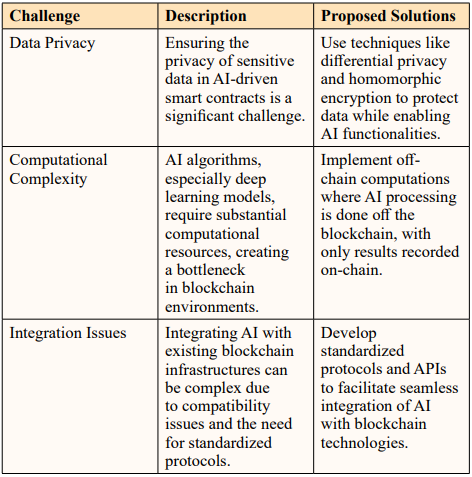
The legal framework of AI-based intelligent contracts is still in the process of formation as authorities around the globe attempt to adapt to novel issues related to this technology [12]. The top- ics include data protection and security and the ethical use of artificial intelligence. This is because the regulatory bodies are more closely examining how the AI systems process personal data and if the relevant protection measures are incorporated. Such scrutiny is essential to minimize exposure of individuals' data and misuse of its data while applying the advantage of AI in intelligent contracts.
Aside from data privacy, regulators are also targeting the securi- ty risks associated with using AI-based intelligent contracts. It is necessary to guarantee that these contracts are protected against cyber threats and dangers, especially considering the critical ap- plications in the monetary and healthcare industry. These smart contracts should conform to existing cybersecurity standards, and security measures to preserve them should be adopted. The credibility of their smart contr in smart contracts leads to more critical ethical questions here. There are attempts to set up measures to prevent AI systems' misuse and guarantee their fair employment. This covers the 3rd aspect of AI, which involves mitigating biases in decision-making and ensuring that intelli- gent contracts deployed by AI will follow set ethical and legal provisions. The goal is to develop conditions that would encour- age innovativeness growth, keep users safe, and stay compliant with industry standards.
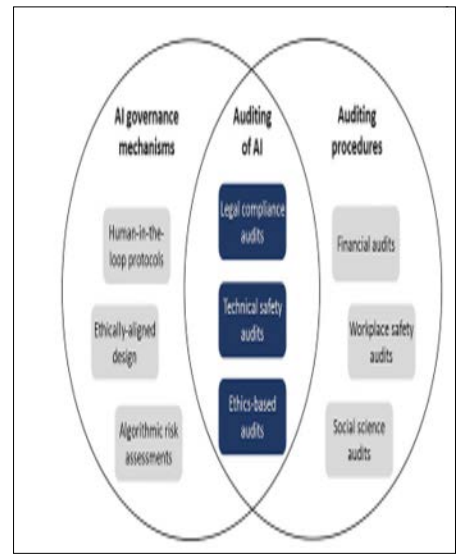
Figure 6: Auditing of AI: Legal, Ethical and Technical Ap- proaches
AI can significantly enhance the effectiveness of compliance with regulatory norms by automating the control of contractual terms [13]. Smart contracts can improve software tracking of compliance with the help of AI algorithms integrated within them and exclude the probability of human error. This automates the realization of contract provisions and monitoring compliance with specific contract terms, which entails a perfect check on all contractual compliance properly.
Ref 6 also points out that AI can quickly look for updates to compliance that the regulators have required. Such an approach allows the smart contracts to stay in tune with the current legal and regulatory framework, thus avoiding the likelihood of the smart contracts being non-compliant. AI can set contract terms and procedures to support systems to update in response to new laws, ensuring that violation of rules is not a common occur- rence in organizations and thereby reducing penalties that may be incurred.
Apart from constant surveillance and compliance alteration, AI plays a crucial role in formulating reports and documents necessary for auditing by regulatory bodies. Regarding report generation, AI can help demonstrate compliance with required standards by generating compliance reports and supplying or- ganizations with the most accurate and up-to-date information. This not only makes the compliance process far more accessible but also eases the processes of increasing the transparency and responsibility of the organization when working in the field of compliance with numerous regulations.
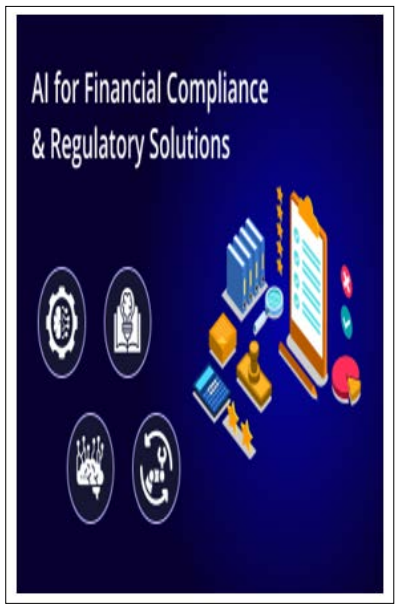
Figure 7: AI for financial compliance
AI improves how a user engages a platform by integrating ef- fortless interfaces that govern the user's relations with smart contracts. One of them is Natural Language Processing (NLP), which means that one will not need to be a legal expert to inter- act with smart contracts, as most of the communication will be in the everyday language that other people will understand. This decentralizes the functionalities of intelligent contracts, thus making it easier for incompetent human beings to incorporate smart contracts into their projects.
A part of Analytics depends on the advancement of AI Technol- ogy, which is majorly used to enhance the user experience. By observing users and their contracts, AI can give valuable recom- mendations on how to proceed with contract interactions. Such insights are beneficial to users as they enable them to make wiser decisions about how they interact with smart contracts to im- prove user satisfaction.
In addition to NLP and analytics, AI can also be useful for im- proving the graphical user interfaces using improved data visu- alization methods and integrating active input-output tools. The application of dashboards with artificial intelligence makes it possible to display information on the contracts' performance and status in an easily understandable manner. With the help of these AI capabilities, interfaces become more interactive and intelligent, minimizing users' effort to manage and utilize their smart contracts [1].
Smart contracts with AI capabilities need to be easy for clients to understand and use, and therefore, the interfaces of these smart contracts should be straightforward for users to comprehend. All the contract relations should be easily visualized for users, which allows them to understand the terms or conditions of the contract as well as the current status of the contract without hav- ing to delve further into each one of them. Real-time updates ensure that the users are notified of any contract changes or de- velopments, enabling efficient control and decision-making.
Another important component in developing the interfaces of AI-based smart contracts is the use of interactive dashboards. These dashboards are expected to provide the users with a single source for tracking contract metrics and performance KPI’s in a seamless manner. Ele é que essas central de contratos geram uma mais fácil e eficiente experiência produtiva dos usuários ao fornecerem quaisquer informações necessárias e controlar con- tratos através de uma única interface.
Artificial intelligence chatbots and virtual assistants could boost users’ engagement even more by providing prompt help and in- structions [14]. Using such AI tools, a user might be helped to type a query and get an immediate response with clarification or an identification of the problem without having to entail the real- time assistance of the smart contract. This affordance of design, the interactivity provided by the elements, and the artificial intel- ligence assistance make it easier for the user.
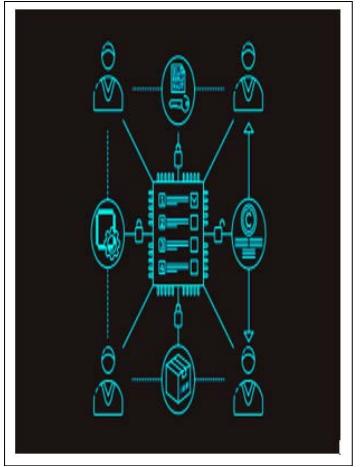
Figure 8: The Power of AI-Driven Smart Contracts
With most industries and products steadily incorporating intel- ligent contracts powered by Artificial Intelligence, there is a pro- spective alteration of the economy [15]. When such processes are standardized and automated, the effect of such agreements can prove highly beneficial for the organizations in terms of cost reduction. By eliminating the intermediaries and minimizing the supervision done by human beings, one can save on petty ex- penses, as well as advance efficiency. Such heightened velocity can help speed up the pace of transactions and optimize the func- tioning of affiliated companies, which, in turn, contribute to new business strategies that rely on optimized processes.
From a social perspective, AI-enabled intelligent contracts will significantly transform trust and openness in transactions. Since the blockchain is secure and invulnerable and its contents cannot be altered once recorded, every term laid down in the contract is equally protectively enforced. This decreases fraud and corrup- tion since all parties to the agreement can see and compare the written terms and conditions. Also, intelligent contracts prevent prejudice and parochialism by automating processes of render- ing services based on agreed-upon terms and conditions embed- ded in the smart contract.
Smart contracts technology raises the question of job loss for the workers who previously dealt with contractual provisions and carried out administrative work. Still, employing technology will create employment opportunities for Artificial Intelligence developers, Blockchain engineers, and cybersecurity experts. The possible efficiency increases because of these smart con- tracts for starting matrixes for new economic growth and corre- sponding jobs and careers that didn’t exist before can be created.
In the case of smart contracts using artificial intelligence, we notice job loss within the scope of contract arrangement and ad- ministrative services due to automation; however, it also creates a vast array of possibilities. A growing need for such profes- sionals is predicted when organizations integrate and implement these and other advanced technologies [16]. Thus, the techno- logical breakthrough that AI brings naturally leads to the emer- gence of new professions and specialists who will create and implement such intelligent contracts and ensure their protection from hackers.
Besides improving efficiency and saving costs, these technolo- gies will benefit the economy and lead to the creation of new industries and types of employees. As businesses incorporate these technologies and notice their positive impacts on efficien- cy, there will be increased investment in sectors related to these technologies. This growth will spawn new jobs while making the job market dynamic and constantly changing.
The prospect of intelligent contracts using Artificial Intelligence is rather significant, with emphasis placed on research and inno- vation in several significant spheres to improve the technology [17].
Is a primary consideration; the idea is to provide proper com- patibility and information sharing between various implemented blockchain platforms and AI technologies. Interoperability must be defined and reached by creating standard protocols and APIs that allow effective interoperability. This process involves form- ing interfaces, allowing different blockchains to integrate and function harmoniously. Advancements in this area would sig- nificantly improve the performance and utility of AI-powered intelligent contracts through the efficient interconnection of het- erogeneous blockchain networks.
Another critical growth area is an interest-bearing account, a savings or deposit account. As AI smart contracts become char- acteristic in the real world, more transactions and participants are required to process them. That implies that more significant progress must be made in consensus techniques and distributed computing. New approaches like sharding, layer-two scaling solutions, and the efficiency of the consensus algorithms are critical in dealing with congestion, thus maintaining efficient ex- ecution of transactions about the external environment. Higher scalability should become the next development focus if intelli- gent contracts powered by artificial intelligence are widely used and implemented in real-life mass projects.
Concerns with AI is considered a relatively new problem; its crucial idea lies in the hypothesis that AI decision-making in intelligent contracts needs to be fair, transparent, and account- able. Some of the critical things include establishing ways and means to address ethical problems, such as how to detect bias and eradicate it and how to make the decisions made by the AI understandable and justifiable. With frameworks of ethical AI in place, there will be confidence in these systems, and therefore, their operation will be correct and meet the standards that reflect the society’s and laws of the land.
Literacy, democratic participation, scientific rationality, and ICT represent four more major development zones. The objective is to develop state-of-the-art AI solutions to automate further the remaining advanced simple and complex contractual terms and conditions. This includes expanding the natural language pro- cessing (NLP) functionalities and using advanced techniques in areas of machine learning to understand and act upon intricate terms in a contract. With the help of enhancing the application and the level of automation, AI-based smart contracts can cor- respondingly cover broader scenarios, which indicates that AI- based intelligent contracts can be applied to a more comprehen- sive range of fields and industries [18-21].
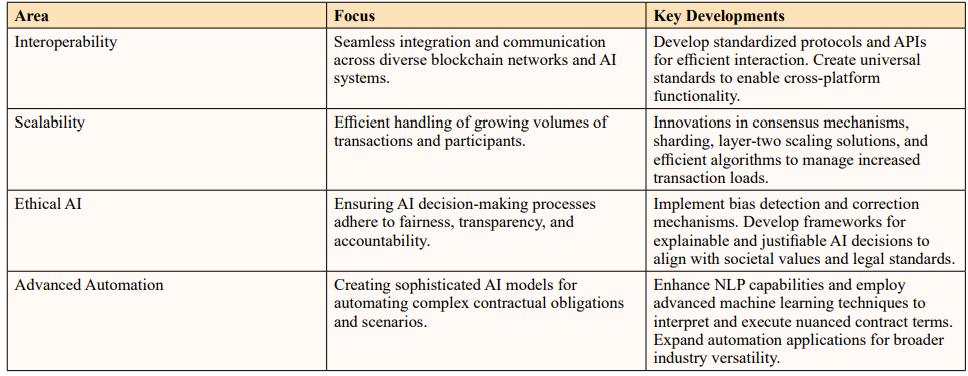
The integration of AI and blockchain marks a shift in third-gen- eration intelligent contracts that are smart, secure, and highly efficient. Thus, regarding AI, intelligent contracts receive the option to process large amounts of input data, make decisions, and react in response to alterations in conditions simultane- ously. This integration solves some of the significant issues of innovative contract solutions, including inflexibility and the re- quirement of constant supervision by human intermediaries and control authorities, thus strengthening the parties’ contractual environment.
With time and as more types of AI are discovered with enhanced capabilities, the possibility and impact of adopting intelligent contracts will also grow. Such innovations look forward to a revolutionisation of operations, ranging from financial services to supply logistics, healthcare services and the legal field. The advanced use of smart contracts and the integration of artificial intelligence will thus lead to improved efficiency, cutting costs, and generally increasing transparency, yielding more opportuni- ties for development in various field.
The continuous advancement in interoperability, scalability, ethical AI, and advanced automation will play a crucial role in determining the future of smart contracts by AI. Thus, by ex- pressing today’s problems and pursuing improvements in the capabilities of such technologies, we can expect an even more automated and open future. Such an evolution will not only en- hance the sophistication and effectiveness of smart contracts but also enhance the trust and solidity of digital transactions; hence, it paves the way for the new norm in the execution and manage- ment of the agreements.
